1. 6. Understand and Discuss Information Issues
1.1. 5.2.G Demonstrates an understanding of institutional policies related to human subjects research
1.2. 5.3.B Posts permission granted notices, as needed, for copyrighted material
1.3. 5.2.F Demonstrates an understanding of what constitutes plagiarism and does not represent work attributable to others as his/her own
1.3.1. research project
1.3.1.1. in text citations
1.3.1.2. bibliography
1.4. Assignments
2. 2. Select and Retrieve Information
2.1. 2.1.A Identifies appropriate investigative methods (e.g., laboratory experiment, simulation, fieldwork)
2.1.1. Research Proposal
2.2. 2.2.E Implements the search strategy in various information retrieval systems using different user interfaces and search engines, with different command languages, protocols, and search parameters
2.3. 2.2.F Implements the search using investigative protocols appropriate to the discipline
2.4. 3.7.C Reviews information retrieval sources used and expands to include others as needed
2.4.1. Citation Chasing
2.4.2. Research Project
2.4.2.1. research journal
2.5. 2.3.C Uses specialized online or in person services available at the institution to retrieve information needed (e.g., interlibrary loan/document delivery, professional associations, institutional research offices, community resources, experts and practition- ers)
2.6. 2.3.D Uses surveys, letters, interviews, and other forms of inquiry to retrieve primary information
2.6.1. Expert Interview
3. 3. Evaluate Information
3.1. 3.2.B Analyzes the structure and logic of supporting arguments or methods
3.1.1. in class discussions
3.1.2. Research Project
3.1.2.1. Annotated Bibliography Evaluation
3.1.2.2. Research Journal
3.2. 3.3.B Extensd initial synthesis, when possible, at a higher level of abstraction to construct new hypotheses that may require additional information
3.3. 3.3.C Utilizes computer and other technologies (e.g. spreadsheets, databases, multimedia, and audio or visual equipment) for studying the interaction of ideas and other phenomena
3.4. 3.3.D Tests theories with discipline-appropriate techniques (e.g., simulators, experiments)
3.5. 3.4.E Determines probable accuracy by questioning the source of the data, the limitations of the information gathering tools or strategies, and the reasonableness of the conclusions
3.5.1. Research Project
3.5.2. Discussion of In Class Readings
4. 4. Create a Product
4.1. 4.1.D Manipulates digital text, images, and data, as needed, transferring them from their original locations and formats to a new context
4.1.1. Research Project
4.1.1.1. research journal
4.2. 4.2.A Maintains a journal or log of activities related to the information seeking, evaluating, and communicating process
4.3. 1.1.F Recognizes that existing information can be combined with original thought, experimentation, and/or analysis to produce new information
4.3.1. In Class Discussion
5. 5. Communicate the Product
5.1. 4.3.C Incorporates principles of design and communication
5.1.1. Research Project
5.1.1.1. Research Paper
5.1.1.2. In Class Presentation
6. 7. Participate in information discourse
6.1. 1.2.E Differentiates between primary and secondary sources, recognizing how their use and importance vary with each discipline
6.1.1. in class discussion
6.2. 3.6.A Participates in classroom and other discussions
6.3. 3.6.C Seeks expert opinion through a variety of mechanisms (e.g., interviews, email, listservs)
7. 1. Information Need
7.1. 1.1.A Confers with instructors and participates in class discussions, peer work groups, and electronic discussions to identify a research topic or other information need
7.1.1. In Class Discussion
7.1.2. interview an expert
7.1.3. Research Project
7.2. 1.4.B Describes criteria used to make information decisions and choices
7.2.1. research proposal/plan
7.2.2. In class discussion
7.3. 1.2.F Realizes that information may need to be constructed with raw data from primary sources
7.3.1. IC Archves Research Project
7.3.2. Social Media Research Project
7.4. 3.7.A Determines if original information need has been satisfied or if additional information is needed
7.4.1. Research Journal
